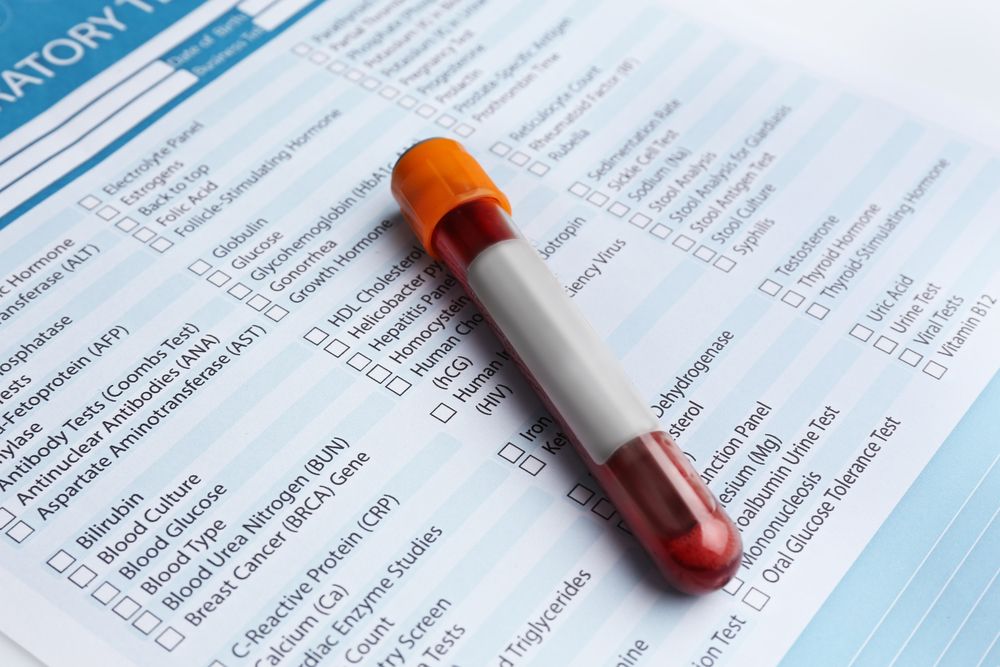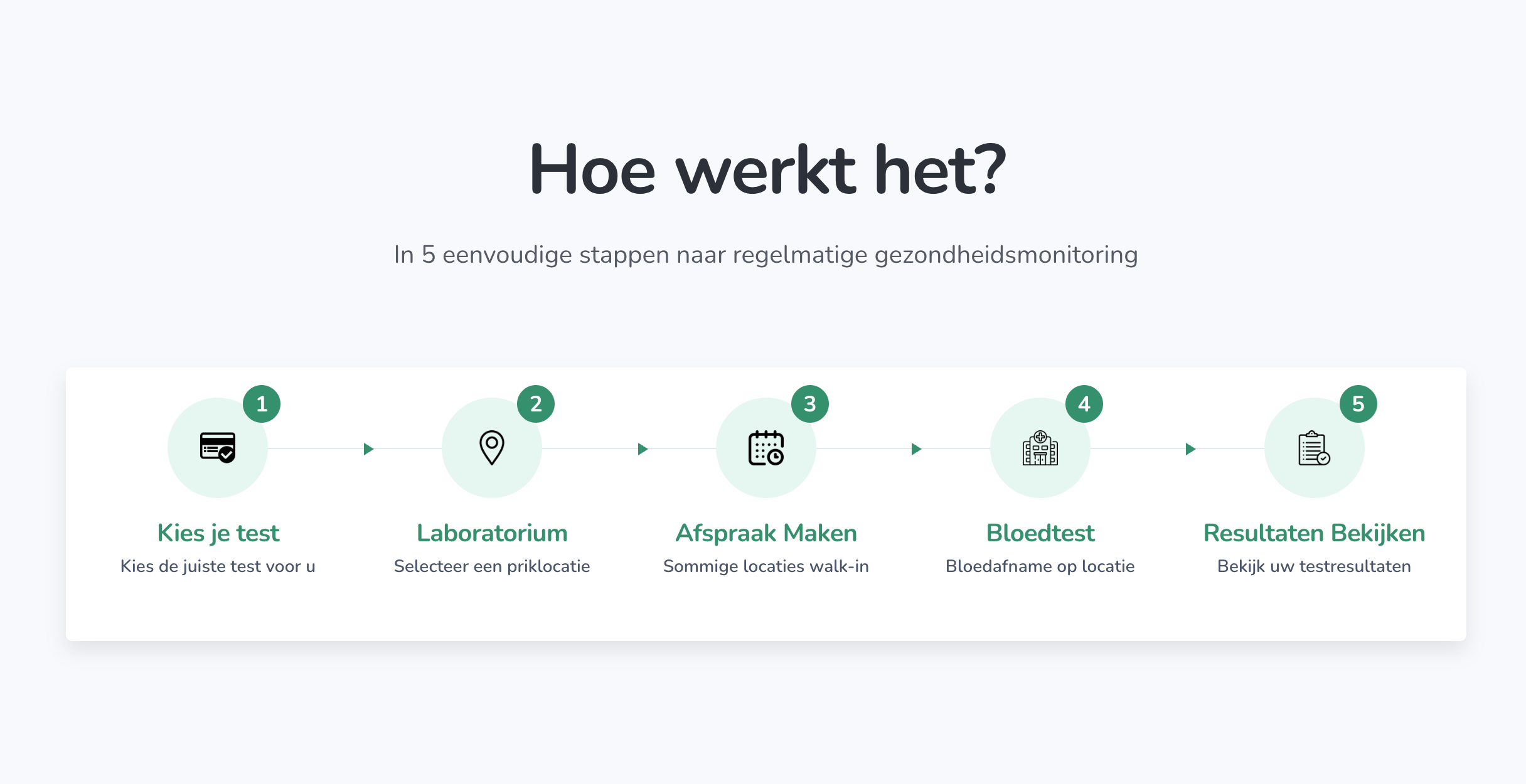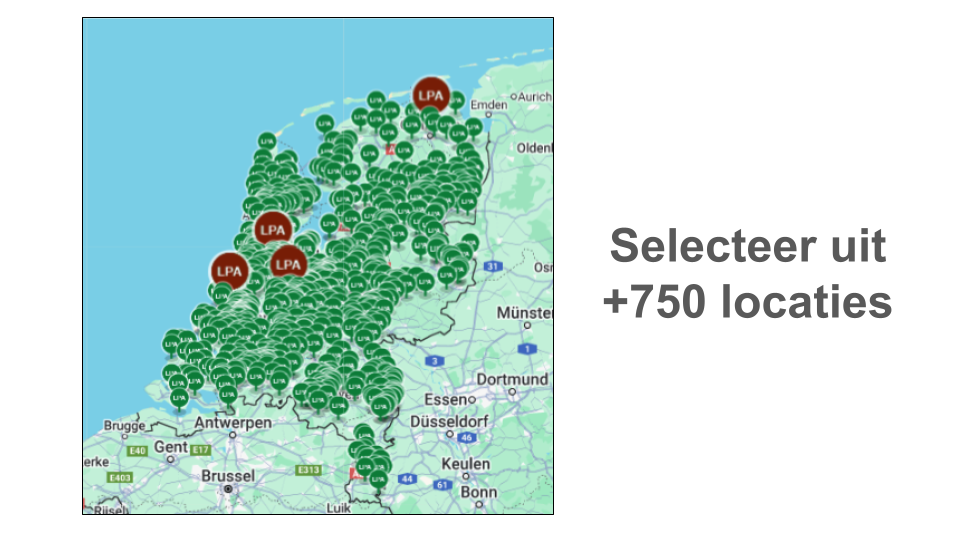The PSA blood test measures an antigen in the blood. An increase in the PSA in the blood can indicate prostate cancer. However, the PSA is also increased with inflammation of the prostate (prostatitis) and in case of enlargement of the prostate (benign prostate hypertrophy BPH). A BPH is by definition benign. There is therefore no prostate cancer (yet). PSA increases with age, but clear limits have been described for PSA in the blood.
What do we determine with the PSA blood test?
The PSA blood test is only performed on men, because women do not have a prostate. The PSA value shows whether there are any abnormalities in the prostate. PSA is a protein that is produced almost exclusively by the prostate cells. Good prostate function is necessary for the lubrication of sperm cells.PSA: Prostate Specific Antigen Blood Test
PSA occurs in the blood as free PSA (not bound) and complex PSA. That is PSA bound to a protein. In this blood test for PSA we measure the total amount of PSA. That's free PSA + complex PSA together. So a PSA blood test means a total PSA test in the blood. We can also determine free PSA, because this is sometimes more specific for the presence of prostate cancer. In men with prostate cancer, research has shown that there is less free PSA in the blood, compared to complex PSA. However, for preventive screening for prostate cancer, the total amount of PSA is also fine.A normal total PSA value is generally less than 4.0 µg / l (microgram per liter of blood). However, there are also people with prostate cancer and PSA between 2.5 µg / l and 4.0 µg / l. There are also men who do not have prostate cancer and have a PSA higher than 4.0 µg / l. In other words, the PSA blood test is not a diagnostic, but a screening test.
If the PSA value is higher than 10.0 µg / l, then the chance of prostate cancer more than 65%. You can only do additional research if your PSA is elevated. This is often a biopsy in which a piece of prostate tissue is removed with a needle. This piece of tissue is studied by the pathologist.
In the Netherlands there is no screening for PSA. In some other countries yes. This is due to the trade-off between the costs of screening and the gain in life expectancy.
Particularities?
The results of the PSA blood test usually take 48 hours.When to choose the PSA blood test?
Only choose the PSA blood test for:- Urinary complaints such as reduced flow or frequent urination of small amounts
- Men aged 40 and over with urinary complaints
When to take the PSA blood test?
This test is particularly suitable as a first step in screening for prostate cancer. The chance of getting prostate cancer under the age of 40 years is rare. It is therefore recommended to take this test from the age of 40 in case of urinary complaints. As a preventive blood test for prostate cancer, it is not permitted as a screening test in the Netherlands.How accurate is the PSA Prostaat blood test?
The accuracy of the test for PSA Prostaat is conducted through ISO-certified laboratories. The accuracy of a test method is expressed in terms of specificity and sensitivity. However, the most important aspect is that the results are interpreted and accepted among general practitioners and hospitals. This is the case with our venous samples. Mutual acceptance may not always be present due to potentially reduced reliability with a capillary sample.
How long does it take to receive the results of a PSA Prostaat blood test?
Most tests generally take 24-48 hours. Tests that go through an LC-MS method generally take longer, think about an average of 3-7 working days. Additionally, it also depends on the location. Some locations do the analysis themselves and others outsource it to another lab.
How do I interpret the results of a PSA Prostaat blood test?
Interpreting the results of PSA Prostaat is not always easy and should be seen in the broader picture, along with anamnesis and physical examination. In the doctor's advice section, the query in which you can already outline your complaints is taken into account, otherwise, the results are interpreted in conjunction with the other results. If necessary, the doctor can call to ask about physical abnormalities. You don't have to interpret the results yourself because there is always advice and explanation from the doctor.
What should I do if my results from a PSA Prostaat blood test are abnormal?
If the results of the test for PSA Prostaat are clinically significantly abnormal, the doctor will contact you by phone. If you are not reachable, you will receive an email. This includes advice and an explanation of the abnormal results and what you can do about them. If you need a prescription or referral, we can help with that.
How much does a PSA Prostaat blood test cost? Is it covered by insurance?
The costs of PSA Prostaat can be found on the product page. Depending on your insurance and additional packages, you may be reimbursed for these costs for PSA Prostaat. For example, tests for IVF treatment are often reimbursed. After your order, you will receive an invoice that you can submit to your insurance.
How can I order a PSA Prostaat blood test?
The ordering process is easy. You can add a PSA Prostaat test or the tests you want to your shopping cart. In step two, you fill in your details and pay. Then you will receive an email confirmation and you can go to a collection location. After you have been there, you will receive the results of the PSA Prostaat test in your Portal.
Is my data safe when I get a PSA Prostaat blood test?
We are certified-ready according to the NEN 7510 and 7512 standards for secure data transfer in healthcare. The Portal is secured with two-factor authentication. Your data is also encrypted. We do not send the results of PSA Prostaat to third parties without permission, not even to your general practitioner without your consent.
Do I need to visit a clinic for a PSA Prostaat blood test, or can it be done remotely?
The blood test for PSA Prostaat must take place at one of the collection locations we provide. At certain locations, it is possible for a phlebotomist to come to you. You can indicate this during checkout. An appointment will then be made as soon as possible to come to your home.
How do I book an appointment for PSA Prostaat blood test?
You can easily make an appointment for PSA Prostaat blood test after your order in your Portal. You can visit almost daily in all major cities in the Netherlands. In smaller cities, you can visit on certain days. At certain locations, it is also possible to visit on weekends.
Is a doctor's interpretation included in a PSA Prostaat blood test?
An interpretation by a doctor or an explanation is included in the PSA Prostaat test. The explanation takes into account the query that you can specify in your Portal after ordering.
How does a PSA Prostaat blood test differ from over-the-counter tests?
For blood tests, we always use venous sampling. This is the gold standard for blood collection. Over-the-counter tests, such as a finger prick test, use the capillary route for blood collection. These do not always give the same results and the accuracy depends on how, where, and with which technique the collection is done. The advantage, of course, is that the test is easier and less painful to take.
What payment options are available for a PSA Prostaat blood test?
You can always pay with iDeal and credit card (VISA, Mastercard, and Amex). This also includes Apple Pay. The phlebotomists at the collection location cannot accept cash payments.
Are the results of a PSA Prostaat blood test shareable with my doctor?
The results of Labplusarts can be shared with your general practitioner at your request. However, you can also easily arrange this yourself by downloading the result in PDF format. Because we use comparable test methods as the general practitioner, the results are interchangeable and comparable so that comparisons can be made well.


